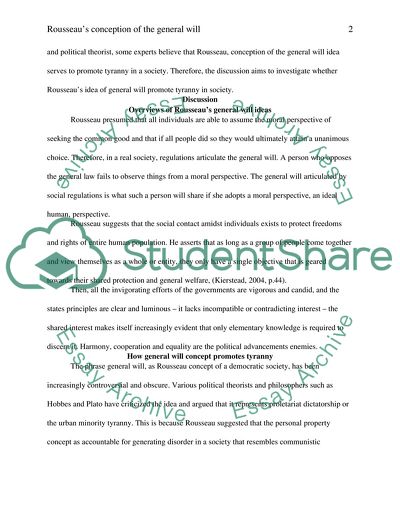Cite this document
(Rousseaus Conception of the General Will and Tyranny Essay, n.d.)
Rousseaus Conception of the General Will and Tyranny Essay. https://studentshare.org/politics/1792458-ba-politics-essay-title-does-rousseaus-conception-of-the-general-will-safeguard-tyranny-or-promote-it
Rousseaus Conception of the General Will and Tyranny Essay. https://studentshare.org/politics/1792458-ba-politics-essay-title-does-rousseaus-conception-of-the-general-will-safeguard-tyranny-or-promote-it
(Rousseaus Conception of the General Will and Tyranny Essay)
Rousseaus Conception of the General Will and Tyranny Essay. https://studentshare.org/politics/1792458-ba-politics-essay-title-does-rousseaus-conception-of-the-general-will-safeguard-tyranny-or-promote-it.
Rousseaus Conception of the General Will and Tyranny Essay. https://studentshare.org/politics/1792458-ba-politics-essay-title-does-rousseaus-conception-of-the-general-will-safeguard-tyranny-or-promote-it.
“Rousseaus Conception of the General Will and Tyranny Essay”. https://studentshare.org/politics/1792458-ba-politics-essay-title-does-rousseaus-conception-of-the-general-will-safeguard-tyranny-or-promote-it.


